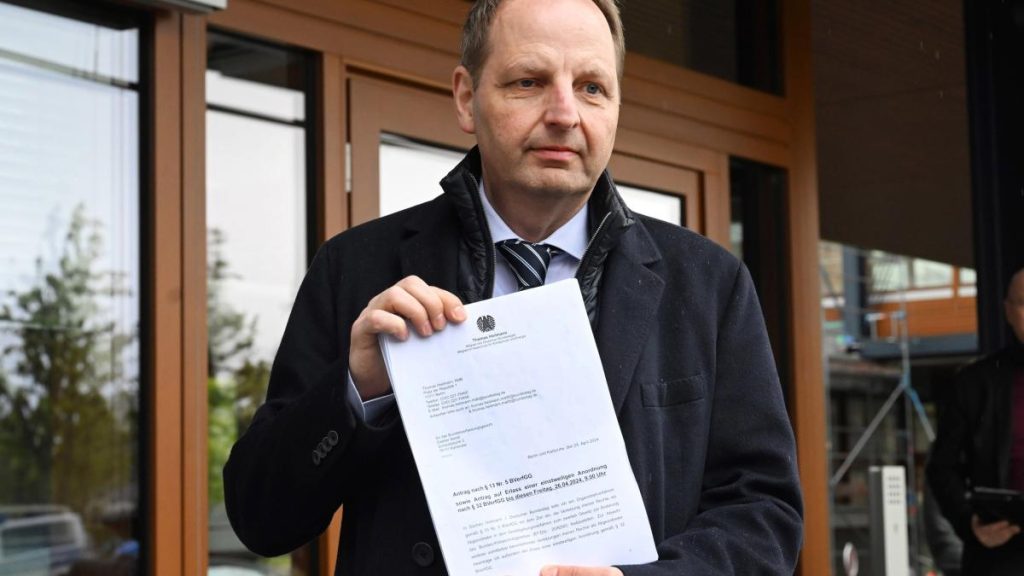The Federal Constitutional Court has rejected an urgent application filed by CDU member Thomas Heilmann against the reform of the Climate Protection Act, allowing the law to be passed in the Bundestag as planned. The court deemed the application inadmissible, paving the way for the planned adoption of the legislation on Friday. Heilmann’s attempt to prevent the vote in the Bundestag was unsuccessful, with the court ruling that the application was invalid from the start.
The revised Climate Protection Act is set to be passed in the Bundestag on Friday, following the rejection of an urgent application by CDU parliamentarian Thomas Heilmann by the Federal Constitutional Court. The court’s decision allows the scheduled adoption of the legislation to proceed. The court dismissed the request for an injunction to halt the law, citing its inadmissibility. Heilmann, along with three other members of the Union faction in the Bundestag and Ralph Lenkert from the Left Party, had joined the legal proceedings, citing concerns over the short consultation period and potential weakening of climate protection efforts.
The reform of the Climate Protection Act includes significant changes. Previously, sectors failing to meet CO2 emission targets had to submit immediate programs the following year. The reform shifts to a multi-year, cross-sectoral approach to monitoring compliance with climate goals. If the government is off track for its 2030 target for two consecutive years, adjustments must be made. Critics, including environmental groups and Heilmann, fear this will undermine climate protection efforts. Germany is required by law to cut greenhouse gas emissions by at least 65% by 2030 compared to 1990 levels, with further reductions to 88% by 2040 and achieving carbon neutrality by 2045.
Following the Federal Constitutional Court’s decision, Green Party parliamentarian Irene Mihalic praised the rejection of Heilmann’s legal challenge, denouncing it as an attempt to substitute political action with legal proceedings. Heilmann canceled a press conference planned for Friday morning. He had also opposed the tight timelines for the Heating Law (Building Energy Act), which the court halted last summer before its eventual passage in September. While the Climate Protection Act is less extensive, its complexities pose significant challenges for climate action.
Heilmann emphasized that procedural errors in the Climate Protection Act case were more severe than in the Heating Law, raising concerns about the impact on climate protection efforts. Despite the postponement of the press conference, the law is set to be adopted in the Bundestag as planned. The rejection of the urgent application clears the way for the implementation of the revised Climate Protection Act, setting the stage for Germany’s ambitious emission reduction targets and commitment to climate neutrality. The decision by the Federal Constitutional Court reinforces the government’s efforts to address climate change and transition towards a sustainable future.


